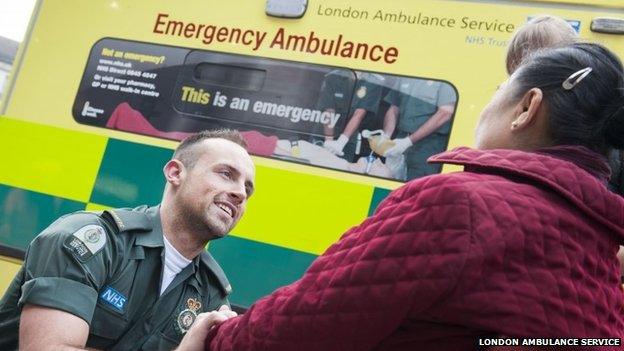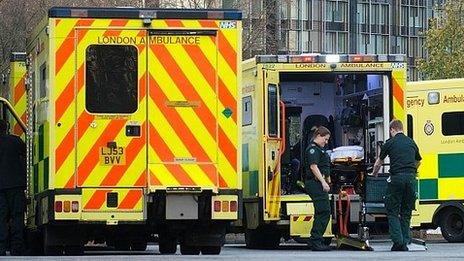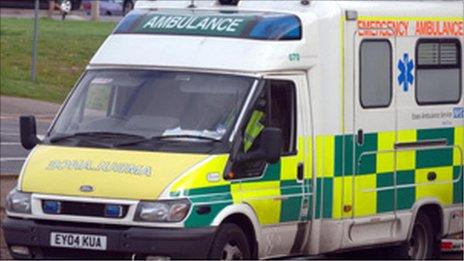Firefighters 'could speed up cardiac arrest response'
- Published

'Co-responding' to emergency calls would save lives, says Tony Arbour
London's firefighters should be able to respond to medical emergencies, according to a London Assembly politician.
Tony Arbour said 'co-responding' , externalwould mean 4,294 patients could be reached more quickly each year.
In 2014/15, London ambulances reached only two-thirds of 'life-threatening' emergency calls within the target time of eight minutes.
But the Fire Brigades' Union (FBU) said it had reservations about the proposal.
Mr Arbour, a Conservative member on the London Assembly, said the London Ambulance Service (LAS) was under more pressure because of an ageing population, while firefighters received fewer call-outs thanks to better fire safety regulations.
He said: "If firefighters attended these life threatening medical emergencies, thousands of patients could be helped quicker, and more lives could ultimately be saved. They already have the training.
"Once on scene, they would administer emergency care until paramedics arrive to take over. In situations such as cardiac arrest, every minute is vital when it comes to saving lives."
Paramedic shortage
The London Fire Commissioner said the brigade had already applied to join a national co-responding pilot "that would allow for rigorous testing of how this would work in practice."
Ron Dobson said the idea "has the potential to transform the future of emergency services in London".
The LAS said there was a national shortage of paramedics and it would "welcome any proposal that will help save the lives of Londoners".
But the FBU said a "number of hurdles" would have to be overcome before it could let its members respond to so-called "red one" emergency calls, where the patient's condition is immediately life-threatening.
Proper training would have to be put in place and firefighters would have to be indemnified, said Ian Lehair, the FBU's Executive Council member for London.
He added that some "red one" calls involved traumatic injury, which firefighters would not be qualified to treat, rather than cardiac arrest.
"There are a number of areas that we need to consider and it's going to take some time."
- Published16 December 2014

- Published4 July 2014
